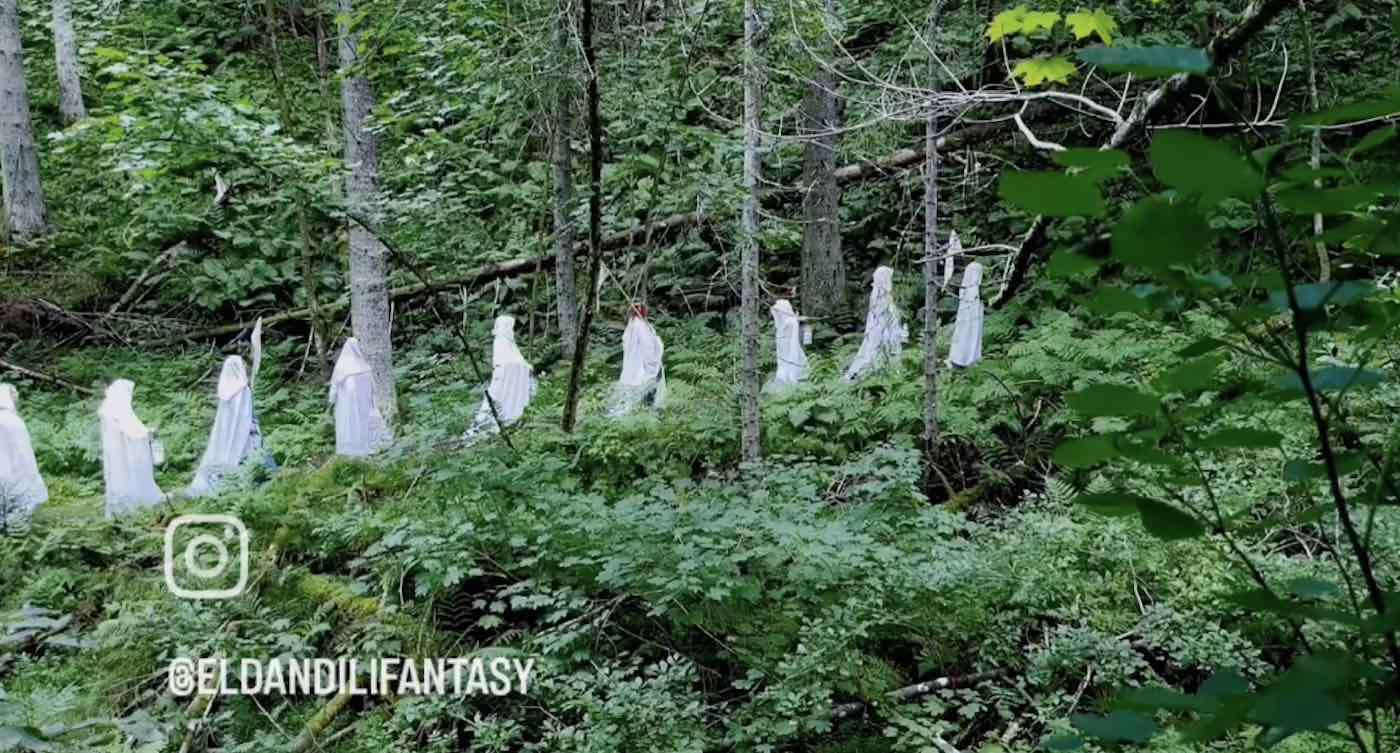Get Ready for the Solar Eclipse Over North American Coming Soon
This time, and like the 2017 eclipse that passed over North America, millions of people will be in the "path of totality."

A choir of cosplaying elves in Sweden sings and performs lyrical works written in Elvish by J.R.R. Tolkien in the ultimate expression of Lord of the Rings fandom.
Called "Eldandili Fantasy" they actually sing choir pieces from all kinds of fantasy staples, such as World of Warcraft, and The Witcher, but these cannot boast the depth and scope of material which Tolkien infused with his own made-up language.
To wit, Tolkien's Middle Earth as we read about it in The Hobbit, The Lord of the Rings, and The Silmarillion, is born through song—as the first deity, Eru Illuvatar, sings companion deities—The Ainur—into existence, and who in turn sing the world of Middle Earth into form.
In another historiographical fiction of Middle Earth written by Tolkien, The Legendarium, the elves, we are told, learned to sing before they could speak.
Tolkien wrote hundreds of words in Elvish, and it gave groups like Eldandili Fantasy, based in Sweden, the lyrical flexibility to try and write pieces that replicate how the author described Elvish music to be.
A British composer once whipped up a piece of music to pair with an elvish poem, Namárië, meaning "Be Well" but after he had played it, Tolkien replied that he had heard it differently in his head, and began to hum something like Gregorian chant.
In The Lord of the Rings, the elves sing in choir-like harmony, in which short sections are sung loudest by a single voice which afterward withdraws and allows another voice to highlight another short section.
These are the kinds of clues that Eldandili Fantasy combines with the written language of Elvish and Howard Shore's Academy Award-winning score for The Lord of the Rings films to make their Elvish songs.
A member of the choir and cosplay group, Jennie Tiderman-Österberg, profiled their work in a long blog post in Smithsonian Magazine, and spoke with one of the sopranos.
"A language is a very intense identity marker," said soprano Kerstin Koij. "It's of no wonder that the elven languages in [Middle Earth] are formulated to be both political and historical, with certain aesthetical qualities dependent on cultural context. They enhance the sense of being genuine and legitimate even though everything is fictional."
It's interesting, Koij notes, for a Swede, whose language is fairly guttural, to sing in Elvish in which many of the consonants occur forward in the mouth, and are sung in a voiceless manner. She also notes the challenge of singing the emotional content.
"The Passing of the Elves for example, sounds like both longing and sorrow all at once—longing [for] Aman, but a sadness to leave the shores of Middle-earth," she notes.
It's clear that a lot of thought and work goes into the choir, which boasts dozens of singers and over 13 instruments, and their effort is worthy of the fantasy world Tolkien left to us.
Information on Eldandili Fantasy choir performances can be found on their website.
LISTEN to that piece and others below…
SHARE This Extraordinary Musical Coplay With Your Friends Who Love Tolkien…
Be the first to comment